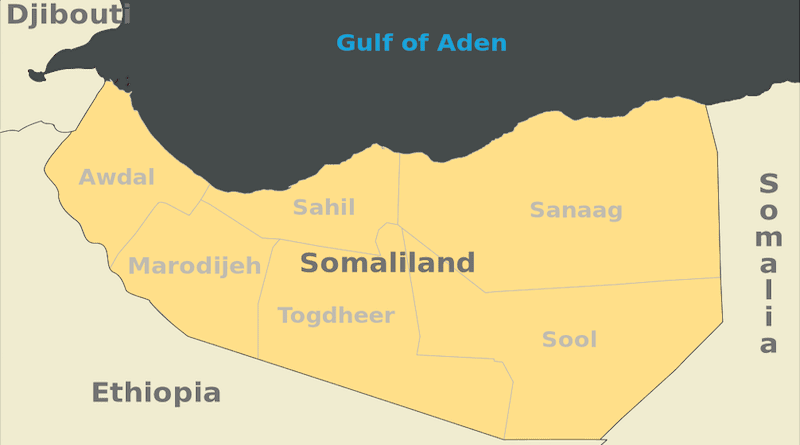Recently, whispers of Somaliland’s impending recognition as an independent state have grown louder. Credible assertions are rife that the incoming administration in the US is not opposed to extending acknowledgment of this self-declared republic. Such a move, if realized, stands to reshape the dynamics in the Horn of Africa, a region long defined by its turbulent history and proxies bound in complex alliances in service of narrow geopolitical interests. But what does this mean for Somaliland, and how is it positioned to transform a distant aspiration into reality?
Somaliland, nestled in the northwest corner of Somalia, unilaterally declared its independence in 1991. However, despite its stable governance and booming economy, it remains largely absent from international recognition. With roots tracing back to a colonial history distinct from the rest of Somalia, Somaliland has consistently demonstrated a more democratic and stable profile than its neighbor — a sharp contrast to the turmoil that has beleaguered Somalia for decades. This compelling narrative of stability juxtaposed against regional chaos forms the bedrock on which Somaliland stakes its claim to statehood.
Recent presidential elections in Somaliland, despite periods of tension and violence leading up to the vote, have sharply elevated the argument for an independent and sovereign country. Abdirahman Mohamed Abdullahi, also known as Cirro, of the Waddani party, secured the presidency with a strong mandate, securing nearly two-thirds of the vote in a poll that highlighted the resilience of Somaliland’s democratic institutions even amid regional instability. However, international recognition, particularly from a global power such as the US, would carry significant geostrategic weight.
The incoming administration in the US might view Somaliland’s stability as a strategic asset against the backdrop of a volatile neighbor and an opportunity to counter the expansion of influence in the region from Washington’s geopolitical rivals. Yet, such recognition risks igniting further unrest by exacerbating clan divisions within Somaliland and antagonizing Somalia, which has vehemently opposed Somaliland’s independence for more than three decades. These implications extend beyond the region, potentially affecting global trade routes at the vital Bab Al-Mandab Strait chokepoint, which divides the busy Red Sea and the Gulf of Aden maritime routes. Here, Somali piracy, Houthi escalations, and a semipermanent international naval presence complicate the dynamics at play where a new country is struggling to be born.
Nevertheless, acknowledging Somaliland’s de facto statehood is a step that would validate its aspirations and contributions toward a more stable region. This recognition would affirm the global community’s commitment to stability and self-determination over archaic border adherence, setting a new standard for addressing similar geopolitical realities.
Somaliland’s quest for recognition carries a range of potential benefits and pitfalls. On the plus side, international recognition would solidify its sovereignty, allowing for increased foreign investment and development assistance which would catalyze economic growth and improve infrastructure. Recognizing statehood would also offer Somaliland the opportunity to join international organizations, further embedding it into the global diplomatic and economic system. However, pitfalls include the risk of heightened regional instability, as recognition might prompt a severe backlash from Somalia, which considers Somaliland an integral part of its territory. Recognition could also set a precedent for other separatist movements around Africa and beyond, potentially reigniting dormant territorial disputes, which might deter some countries from supporting Somaliland’s bid.
A newly independent Somaliland would realign political dynamics within the Horn of Africa. It could alter alliances and worsen existing tensions, particularly among actors who may have vested interests in either supporting or opposing Somaliland’s independence. Ethiopia, for instance, with its historical ties and strategic interests in Somaliland, might endorse such recognition, seeking to counterbalance Eritrean and Somali influences in the region. Nonetheless, the geopolitics of the Horn are precarious, and the global community must quickly determine whether recognizing Somaliland would bring more stability or further complicate a delicate balance of power.
Given the potential for regional upheaval, there is an argument for establishing an international coalition to safeguard post-recognition Somaliland. Such a coalition should include key global and regional actors committed to ensuring that Somaliland’s transition to recognized statehood occurs peacefully. This coalition would provide not only diplomatic backing but also tangible support in the form of security assistance and economic aid to help buffer against any immediate retaliatory measures from neighboring states or non-state actors. Establishing such a coalition would signal to Somaliland’s opponents that the international community is serious about maintaining stability and supporting the country’s sovereignty, potentially deterring hostile actions against it.
Opposition to Somaliland’s recognition is likely to be driven primarily by Somalia, which views the move as a direct challenge to its territorial integrity. Other actors who fear the precedent this sets, especially those in restive regions, may also oppose the move indirectly seeking to impose diplomatic costs for any endorsement.
Ultimately, navigating this turbulence will require astute diplomacy and a clear-eyed assessment of both the risks and the long-term benefits of embracing Somaliland as the world’s newest country. However, it is unclear in current contemplations, whether the incoming US administration’s backing would be as pivotal in overcoming diplomatic inertia for Somaliland’s recognition as experts estimate.
The coming months promise a flurry of maneuvering in a bid to clarify where the US stands regarding Somaliland’s independence. And, once again, the Horn of Africa will be at the center of renewed attention as a new White House administration takes the helm.

